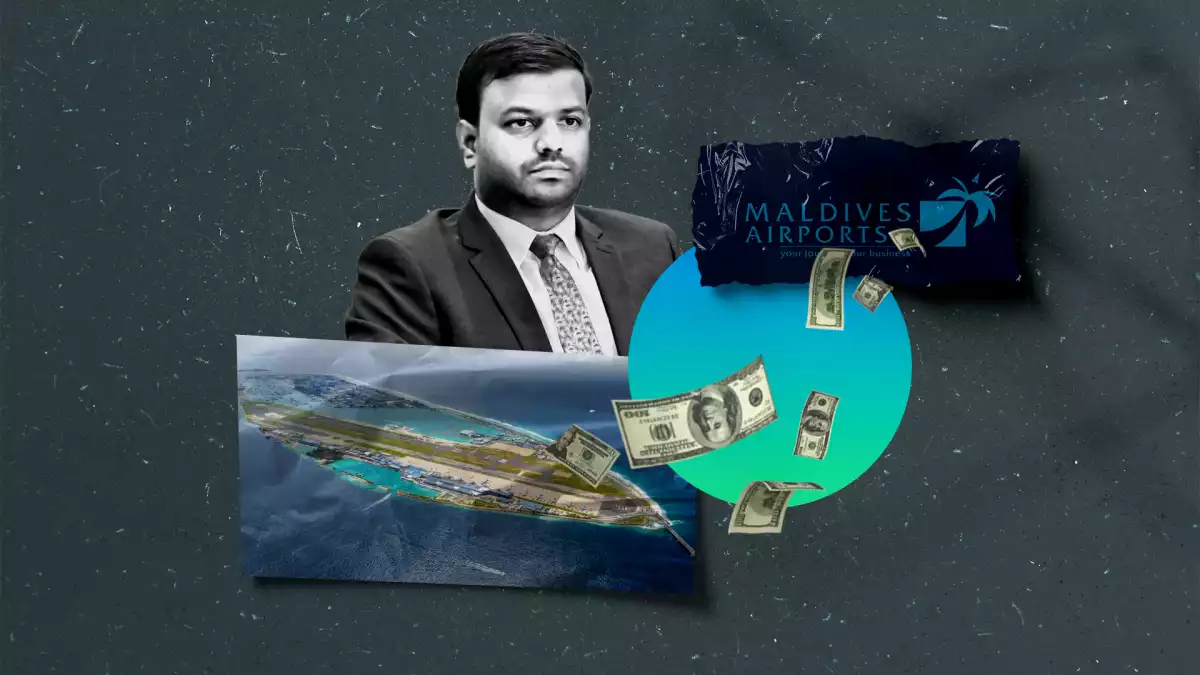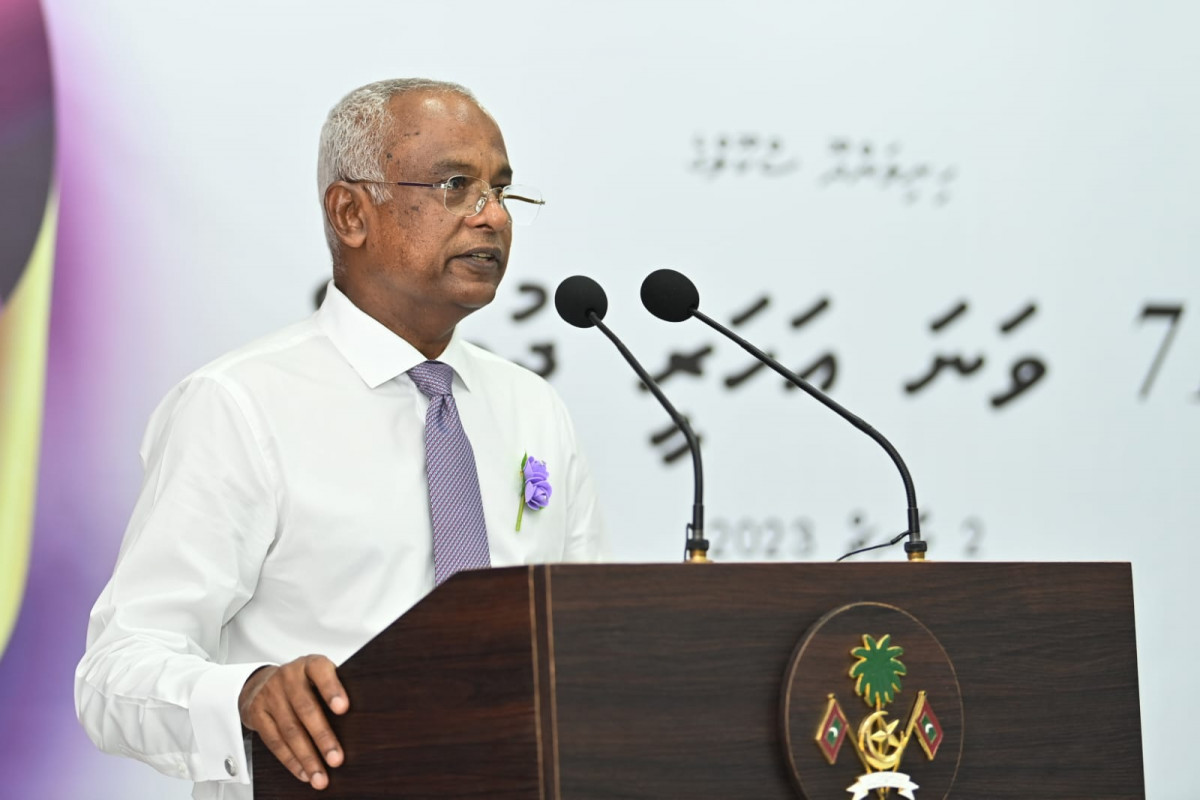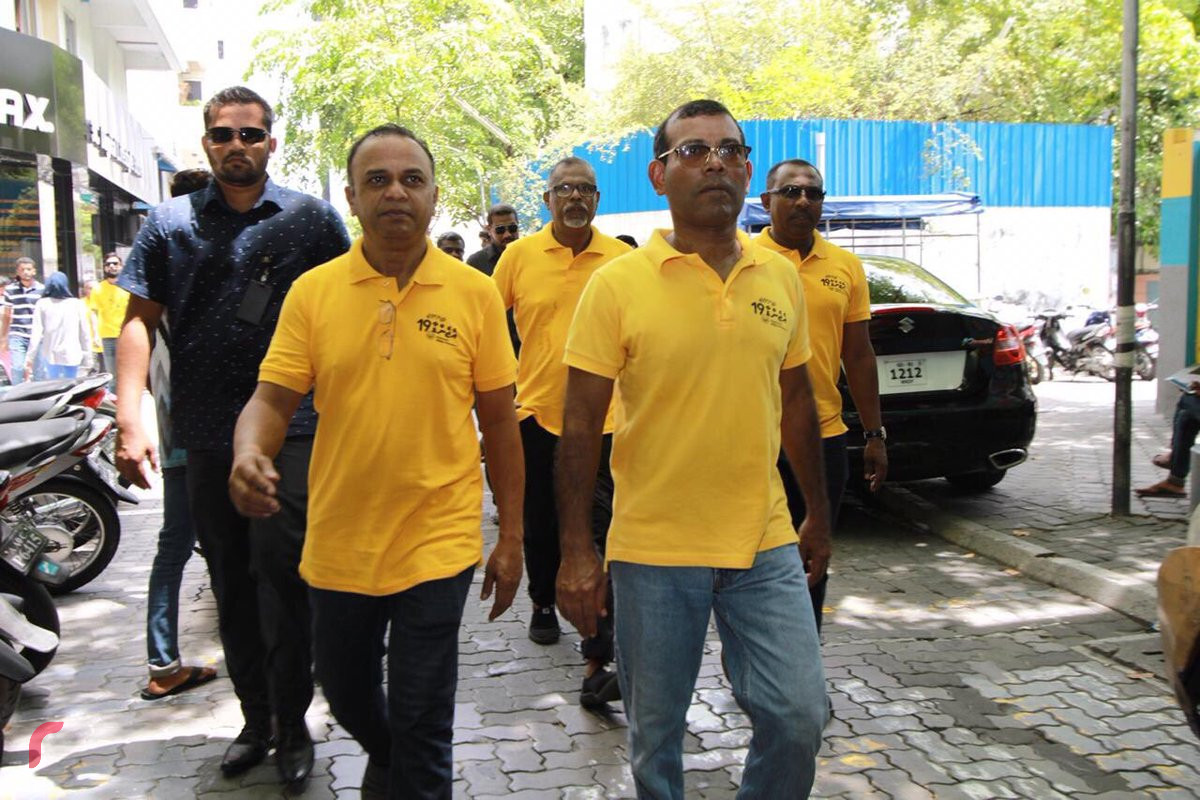Faisal warns of debt crisis, flags risks in MACL deal
Unless a responsible government restores fiscal discipline and transparency, Maldives will default. It is only a matter of time.


Former Maldives Diplomat Mohamed Faisal warns of looming debt crisis, raises investor red flags over airport company financing deal
A former top Maldivian diplomat has issued a stark warning to global investors, regulators and credit rating agencies over the government’s use of the Maldives Airports Company Limited (MACL) as a backdoor financing vehicle to manage its looming sovereign debt obligations.
Former Deputy Ambassador to UAE from the Maldives, Mohamed Faisal, took to social media platform ‘X’ Friday, posting an “Investor Red Flag Brief”, outlining what he calls an “unsustainable and opaque” strategy to delay an inevitable sovereign default.
At the heart of Faisal’s warning is the government’s apparent plan to use MACL, whose primary mandate is airport operations, to secure financing that would be used to address a USD 250 million Sukuk maturing in 2026.
According to Faisal, this maneuver masks the true nature of the borrower, bypasses institutional checks, and poses significant legal and reputational risks to international investors and financial institutions.
Sovereign exposure via MACL
Faisal argues that the financing, although structured through MACL, will directly benefit the Maldivian state. He warns that this effectively misrepresents the use of funds to investors and constitutes material risks.
This includes:
- True beneficiary is the state, not MACL.
- Collateral, in the form of land transfers, is not enforceable by foreign creditors.
- Proceeds will not address structural fiscal issues.
Faisal highlighted that this transaction does not resolve Maldives’ sovereign debt crisis, but postpones default, increases overall exposure and relies on collateral that is unenforceable.
Mounting fiscal and governance risks
Faisal criticizes the government for ignoring repeated calls by the IMF, World Bank, and Fitch Ratings for urgent fiscal reform, such as cutting subsidies, reforming state-owned enterprises (SOEs), and reducing public payroll.
Instead, he claims the administration has expanded subsidies and political hiring, deepening an unsustainable debt cycle.
Faisal warned that refinancing is not repayment, adding that each new loan simply compounds the eventual default risk without reform.
Adding to investor unease are growing concerns about institutional capture. The former diplomat claims recent constitutional and legislative changes have placed oversight bodies including the People’s Majlis, the Supreme Court, the Auditor General, and the Anti-Corruption Commission (ACC), which is under direct executive influence. He also flagged reduced media freedoms and a lack of accountability in public financial management.
Dubious collateral and transparency gaps
Faisal highlighted the questionable transfer of prime land from the Housing Development Corporation (HDC) to MACL’s control despite MACL’s lack of a mandate for urban development.
He argued that this transfer lacked due process and serves as a symbolic rather than enforceable asset in the case of default.
Faisal stated that foreign creditors cannot claim Maldivian land in the event of default, adding that the collateral is politically symbolic, not legally effective.
He also raised concerns that funds from this financing could be misused for short-term political expenditures, particularly through a new mandatory foreign currency exchange policy, which he says is already being exploited for political gain.
Questions for investors and regulators
Faisal’s post includes a series of pointed questions for arrangers, regulators, and institutional investors.
- Has the true beneficiary (the state) been disclosed to investors?
- Is the collateral legally enforceable for foreign creditors?
- Have credit agencies and lenders acknowledged the government’s refusal to implement IMF and Fitch-recommended reforms?
- What mechanisms are in place to ensure the funds are not used for politically motivated spending?
- Is there a realistic plan for repayment when this debt matures?
- What happened to the nation’s earnings over the past two years when no major capital projects were initiated?
A call for global oversight
Faisal’s warning has already attracted attention, with the former diplomat tagging a wide array of influential global entities in his post, including credit rating agencies like Fitch, Moody’s, and S&P, financial institutions such as JPMorgan, HSBC, and Deutsche Bank, and global watchdogs like the IMF, World Bank, Human Rights Watch, and the SEC.
The former ambassador concluded with a stark prediction: “Unless a responsible government restores fiscal discipline and transparency, Maldives will default. It is only a matter of time.”
Implications for global investors
The warning serves as a red flag not only for investors eyeing the Maldives’ Sukuk issuance but also for any financial institution considering involvement in sovereign-linked transactions lacking transparency or enforceable collateral.
Faisal cautions that such financing deals risk being seen as enabling opaque governance practices, and could carry long-term ethical, financial, and reputational consequences.
As the 2026 Sukuk maturity approaches, global financial markets, development partners, and institutional investors will be closely watching the Maldives for signs of reform, or further erosion of its economic and institutional integrity.






